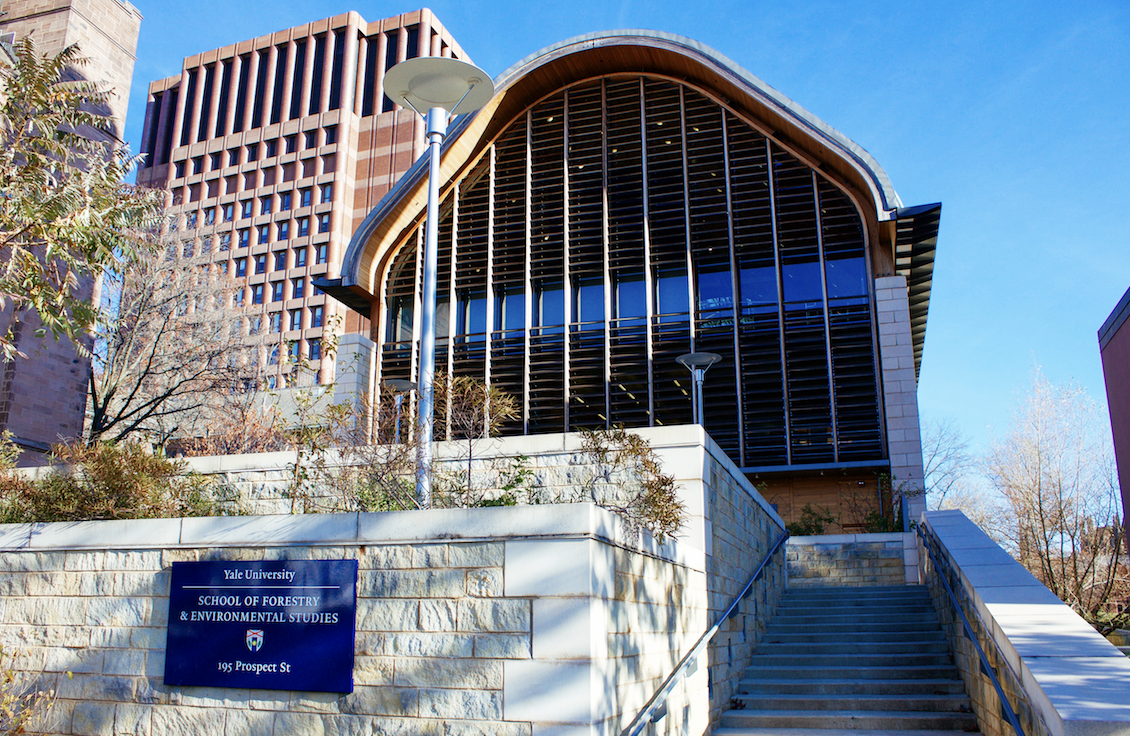
The School of Forestry & Environmental Studies on Friday held its 34th annual research conference — a showcase of the work that graduate students have done in the past year. Students, faculty members and visitors alike spent the day participating in panel discussions and individual presentations on topics ranging from climate change to social justice.
“You sort of sit, and work away on your thesis — as I did for two years — in your office, so it’s kind of nice to take it outside of that wonky academic context and try to distill it into the kind of messages that people might be interested in,” attendee Linus Blomqvist FES ’18 said.
The event mixed traditional academic conference fare with a more lighthearted internal celebration of student work, said Julia Monk FES ’22, a co-organizer of the conference. For example, in one event, students had to present their work using only the 1,000 most common words in the English language.
The event began 34 years ago as presentation by doctoral students. Last year, the organizing team decided to combine the event with the annual presentation given by master’s degree candidates in an effort to encourage more interaction among the F&ES community, Monk said.
“It’s really easy for the students to become a little bit siloed in their labs or their research groups and not have as much of an opportunity to share their work with their peers,” Monk said.
The fact that students are spread out across the University’s campus makes it challenging for them to see each other’s work in progress, said Ray McKeon, information technology director at F&ES.
The presentations drew to a close with a powerful keynote address on scientific racism by Cynthia Malone, a doctoral candidate at the University of Toronto. Malone’s work focuses on the intersection between social justice and scientific research. According to Monk, the students were interested in inviting a speaker whose work “pushed boundaries.”
In her talk, Malone described how prominent scientists’ and thinkers’ racism has shaped the field of science. For example, she said, indigenous peoples are often implicitly described as subhuman. And science can be overwhelmingly Caucasian, she said, deepening the divide between the scientists and the subjects of science. Malone said she has encountered that racial disparity herself, as a black scientist conducting research.
“I’ve often been the only black person — the only black woman — doing this work. It didn’t diminish my passion for the work, but it did make me feel like I didn’t belong,” Malone said.
According to Malone, there are significant connections between environmental and racial justice. In the United States, the same racist systems that create police brutality also cause people of color to bear the highest burdens of environmental dangers. Systemic racism is the common factor in suffering that ranges from the result of the delayed response to Hurricane Katrina to the death of Eric Garner, she added.
After Malone’s talk, the audience enjoyed dinner and a brief awards ceremony, during which attendees reflected on the day’s events.
“Research day has been really exciting,” said Tasneem Islam FES ’18, who attended the day’s events. “It’s great to see everyone who’s been holed up doing their research for the past few years and learning about all the cool things that are coming out of the School of Forestry, because it’s all really interesting and relevant.”
Maya Chandra | maya.chandra@yale.edu







